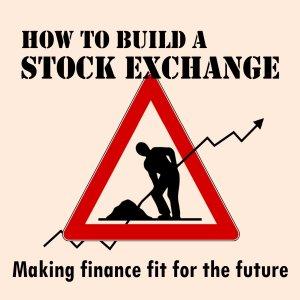How to Build a Stock Exchange

Episode 4. Pickles, public schoolboys, and the business of financing start-ups
This episode takes an anecdotal wander through the business of financing start-ups. Our guide is Sixtus, an old-Etonian who imported ‘business angel’ investing to the UK. Along the way, I’m waspish about public schoolboys, perceptive about pickles, explore the difference between equity and debt, and wonder whether stock markets must always be about those billion dollar valuations.
Transcription
I have long harboured a prejudice against old Etonians. You can drink with them, or listen to their stories, or watch them on television – they’re everywhere when you start to look – but just don’t let them hold your wallet or take your significant other for coffee. I’m almost prepared to make an exception on that point for our present Archbishop of Canterbury, but no, I think not. And God forbid, don’t let them run your country. I used to try and sneak this snippet of wisdom into lectures. If you learn anything from me, I would intone, let it be this…Unfortunately, the spectacle of British politics over the last few years has made such warnings redundant. Cameron, Boris, Rees Mogg… I am almost speechless with rage when I see the damage done to our nation in pursuit of petty self-advancement.
Another deeply held prejudice involves the wearing of velvet collars, so when I spotted a photograph of JRM sporting one such, well, I felt like ‘some watcher of the skies when a new planet swims into his ken’. But this is beginning to sound like one of Rees-Mogg’s own man in the street moments so I am reluctantly forced to concede that I am unfairly singling out that great educational establishment. It would be more simple and accurate to say that one should never trust a former English public schoolboy. For those listening beyond the UK, a public school is – inexplicably – a private one. It’s an educational system built for empire, modelled on Sparta; the ancient world offered two models for a state, one based on democracy and philosophy, the other on military might and hierarchical caste segregation, and the Victorians chose…
Well, enough said. Back to its products. We are mendacious and unreliable. All we can do is talk. There’s James Dyson, the engineer who persuaded us all that vacuum cleaners should look like spaceships and campaigned for Brexit before shifting his factory to Singapore. Or youth icon, gangsta rapper and YouTube phenomenon KSI, who learned his vowels at the same school that I did. We are long on patter and short on substance. Have a look at the KSI youtube fight night if you doubt me on that.
On the other hand, that mixture of assured self-presentation and a natural economy with the actualité – in the words of the late Right Honourable Alan Clark, old Etonian, confessing to lying to Parliament – does suit us well for some occupations outside of politics. We make good actors, acerbic columnists, and amusing enough podcasters, I hope. And financiers. ‘There is,’ writes Michael Lewis in Liar’s Poker, ‘a genus of European, species English, to whom slick financial practice comes naturally. The word for them in the Euromarkets is spivs.’ And then, unusually, Lewis makes a wrong call. ‘Oddly,’ he writes, ‘we had no spivs. Our Europeans-especially our Englishmen-tended to be the refined products of the right schools.’ They, dear Michael, are the spivviest of all.
It seems appropriate, then, that the next step in our journey through stock-market skulduggery is guided by an old Etonian. His name is Sixtus (or something equally silly) and he invented ‘venture capital’ investing.
Hello, and welcome to How to Build a Stock Exchange. My name is Philip Roscoe, and I teach and research at the University of St Andrews in Scotland. I am a sociologist interested in the world of finance and I want to build a stock exchange. Why? Because, when it comes to finance, what we have just isn’t good enough. To build something – to make something better – you need to understand how it works.






 Visit Podcast Website
Visit Podcast Website RSS Podcast Feed
RSS Podcast Feed Subscribe
Subscribe
 Add to MyCast
Add to MyCast